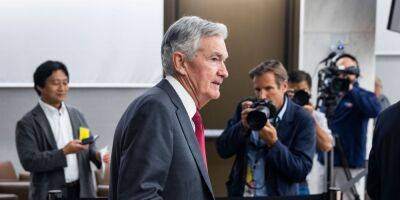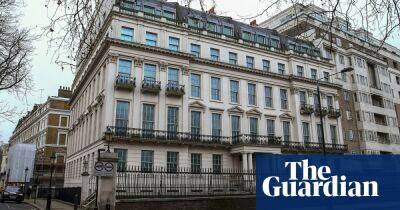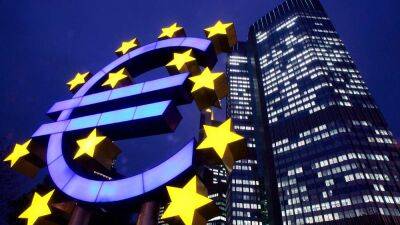Central bankers talk tough, but they can’t fight inflation like this
Central bankers appear on stage like army generals these days. They boast about their firepower and claim they will crush inflation, their longtime adversary. No quarter will be given in the war. The collateral damage will be high.
A week on Thursday, the Bank of England will raise interest rates for a seventh time since last December, probably to 2.25%, and semaphore the message to financial markets that Threadneedle Street is not finished in its quest to defeat inflation.
The conclusion must be that more rate rises are on the way, possibly to 3.5% or even 4% from today’s 1.75%, pushing average mortgage rates to more than 6%.
Once the consumer prices index had jumped to 10.1% in July, there was no doubt in the minds of most City analysts that the Bank would increase the cost of borrowing at its next meeting, and continue raising it into next year.
Meanwhile, the European Central Bank boss, Christine Lagarde, said on Thursday that “determined action had to be taken”, following an unprecedented 0.75 basis points increase in the eurozone interest rate, to 1.25%.
Jerome Powell, the US Federal Reserve chief, may as well have worn army fatigues in his most recent appearances, such is his newfound swagger. He told a meeting of central bankers in Jackson Hole, Wyoming, last month that the Fed would use its tools “forcefully” until prices were under control.
Last week he was on the warpath again, saying he would act “forthrightly, strongly”, before adding: “We must keep at it until the job is done.”
Powell and Lagarde stand with the governor of the Bank of England, Andrew Bailey, in making a case for action based on the premise that higher interest rates can suppress inflation currently in the system, spurred mainly by higher energy
Read more on theguardian.com








![Evaluating if Tron [TRX] is up for a trend reversal this week](https://finance-news.co/storage/thumbs_400/img/2022/10/8/44102_sfou.jpg)







![Assessing how Ethereum [ETH] fared in all of Q3](https://finance-news.co/storage/thumbs_400/img/2022/10/8/44094_qj2fh.jpg)

![Cardano’s [ADA] TVL slumps to an all-year low, but here’s the catch](https://finance-news.co/storage/thumbs_400/img/2022/10/8/44092_oapkk.jpg)
![Convex Finance [CVX]: All you need to know before last unlock takes place](https://finance-news.co/storage/thumbs_400/img/2022/10/8/44091_7smk.jpg)





